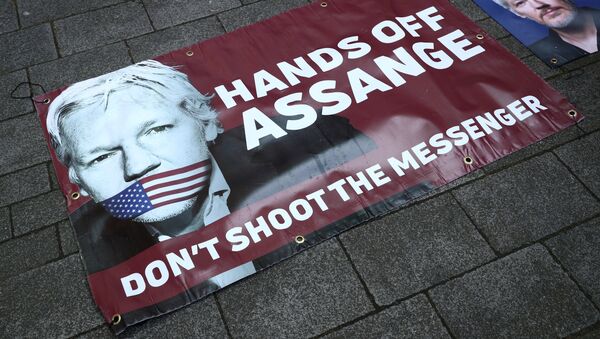Ecuador’s president, Lenín Moreno, was assured by two British foreign secretaries that Julian Assange would not be extradited to a country where he could face the death penalty, according to letters seen by the Guardian. The letters appear to back up Moreno’s claim that he had written assurances from Britain that Assange’s fundamental rights would be respected.
Letters signed by the foreign secretary, Jeremy Hunt, and his predecessor Boris Johnson, dated 7 March 2018 and 10 August 2018 respectively, confirm that according to British legislation, a person cannot be extradited if they could face the death penalty.
In cases of competing extradition requests in the UK, the home secretary selects the country that should take priority.
A virtually identical letters read: “You have expressed concern that, should Julian Assange be extradited from the UK, there would be a risk that he could be subject to the death penalty. I can confirm that under UK law, a person’s extradition cannot be ordered if the person concerned will be subject to the death penalty.”
The letters, as seen by The Guardian, go on to explain that the home secretary first must have received “adequate assurances from that country that the death penalty will not be imposed or carried out” if an extradition request is received from a country where the punishment is possible.
“There is further protection under UK law which is if the home secretary accepts an assurance as adequate, the person concerned may also seek leave to appeal to the high court, which will examine the assurance given,” the letters end.
In a third letter, dated 3 April 2019, the British embassy in Quito assured the country’s foreign ministry in Spanish that Assange cannot be subjected to “inhuman or degrading punishment”, according the 1998 Human Rights Act under article three of the European convention on human rights, to which the UK adheres.
READ MORE: 'Claims Are Completely Ludicrous at This Point' — Journo on Assange's Case
In a 12-page letter seen by The Guardian, dated 10 April 2019 (just a day before the whistleblower was removed from the country’s London embassy)
Ecuador’s Foreign Minister stated a number of reasons for stripping Assange of asylum, particularly singling out his “reproachable conduct rather than showing gratitude”, his deteriorating health and the cost of his upkeep. Ecuador spent more $5.8m on its guest’s security between 2012 and 2018 and nearly $400,000 on his medical costs, food and laundry, Valencia noted.
READ MORE: US Federal Affidavit Against WikiLeaks’ Julian Assange Unsealed
Although Swedish authorities abandoned their case against Assange in 2017, supporters of WikiLeaks have long feared his possible extradition could ultimately involve his relocation to the United States, where he remains wanted over his role in the leaking of classified military and diplomatic cables from 2010 onward.




